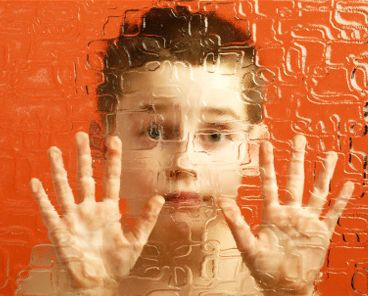Study Confirms No Link Between Childhood Vaccine Schedule and Autism

One in 10 parents still delay childhood vaccination or simply do not vaccinate their children because they fear the vaccination could cause autism spectrum disorder.
First there was a scientific paper published in the British journal Lancet linking vaccines to autism, which has since been retracted because the data and methods used to obtain it were fabricated. Then the blame shifted towards the mercury-based preservative used to keep vaccines longer in storage before use. But when the thiomersol preservative was universally removed from American vaccines, autism spectrum disorder rates continued to rise.
Again blame shifted -- this time towards adjuvants such as aluminum hydroxide, a chemical that boosts the immune response to a vaccine and allows for use of less biological material in the vaccine. According to the Children's Hospital of Philadelphia vaccines only expose babies to 4 milligrams of aluminum in their first six months. That's not very much at all. In fact, babies are exposed to more aluminum in many other, more "innocous" sources: breast milk (about 10 milligrams), infant formula (40 milligrams), and soy-based formula (120 milligrams).
Now another key piece of contention can be put to rest: vaccine scheduling. The CDC's recommended vaccine schedule for children suggests that all recommended vaccinations be administered in the first two years of the child's life. After all, spacing out or delaying vaccines too far can reduce their effectiveness and increase the time a child is susceptible to a preventable disease.
However, many who feel that vaccines lead to autism think that vaccines are not spread out enough and, as a result, can shock the immune system and cause long-term damage. Even though babies are exposed to countless bacteria, viruses and antigens compared to the one or two present in each vaccine, the CDC felt that in order to put parents' fears to rest, it was necessary to investigate.
In the current study, the CDC looked at 256 children with autism spectrum disorder (ASD) and 752 children without ASD that were born before 1994 and 1999. They examined the number of vaccinations that children received and the number of antigens (pieces of biological material in the vaccine) per vaccination. The researchers then added up the number of antigens that the children were exposed to by two years of age.
The study found that the number of antigens that children were exposed to before two years of age was the same for children diagnosed with ASD and those who were not.
Researchers did mention that although children receive more vaccines today, the vaccines have less biological material. They state that a child now gets exposed to 315 antigens through vaccination today compared to thousands in less specific vaccines from the 1990's.
"The possibility that immunological stimulation from vaccines during the first one or two years of life could be related to the development of ASD is not well-supported by what is known about the neurobiology of ASDs," the authors said.
The real question, though, is as evidence for a vaccine link to autism continues not to materialize, will parents and people who focus their energies on blaming vaccines shift gears towards pushing for a more sensible route for finding out the cause of this debilitating disorder?
Visit the CDC's website to learn more about recommended vaccination scheduling.
Published by Medicaldaily.com



























